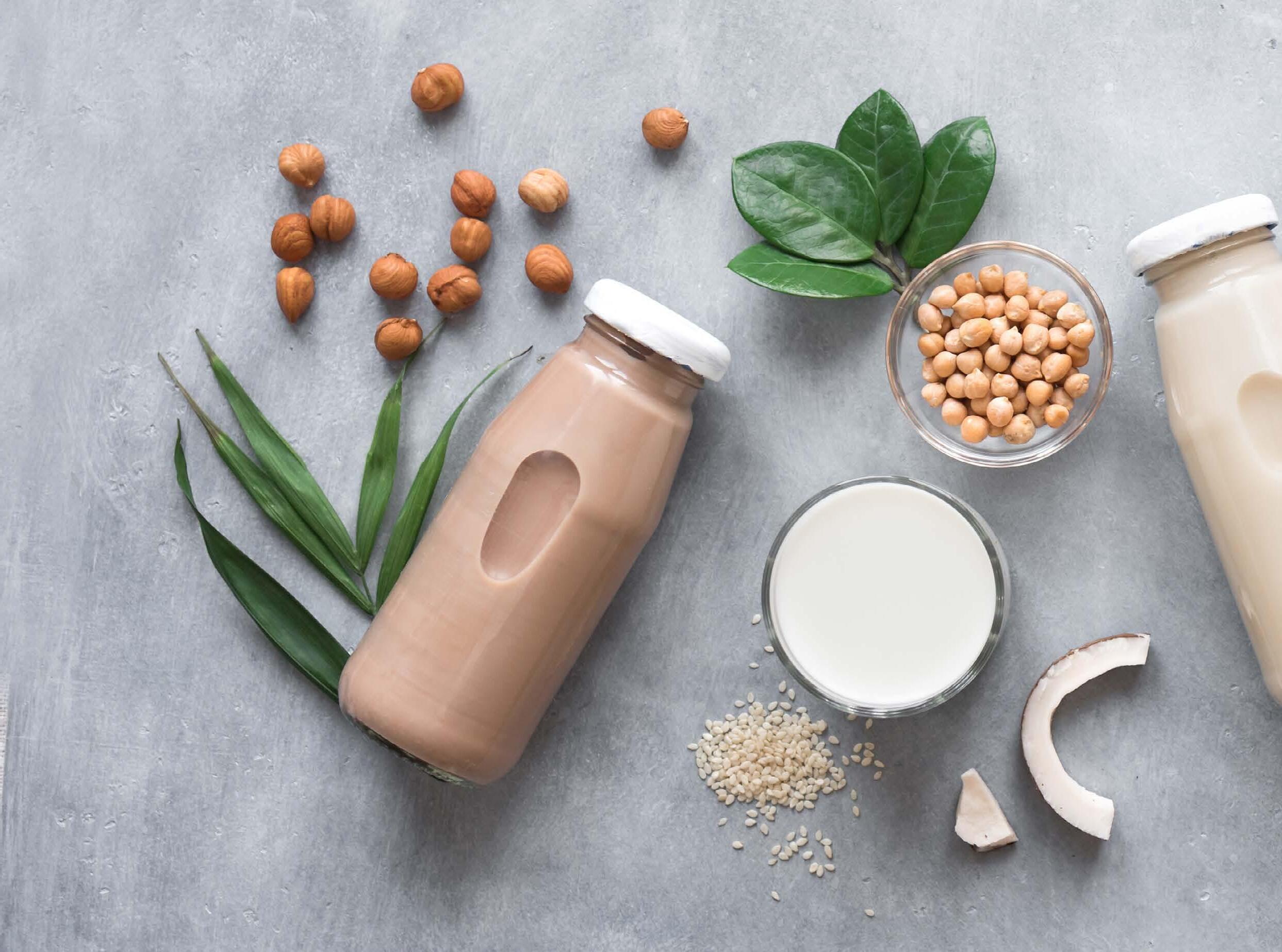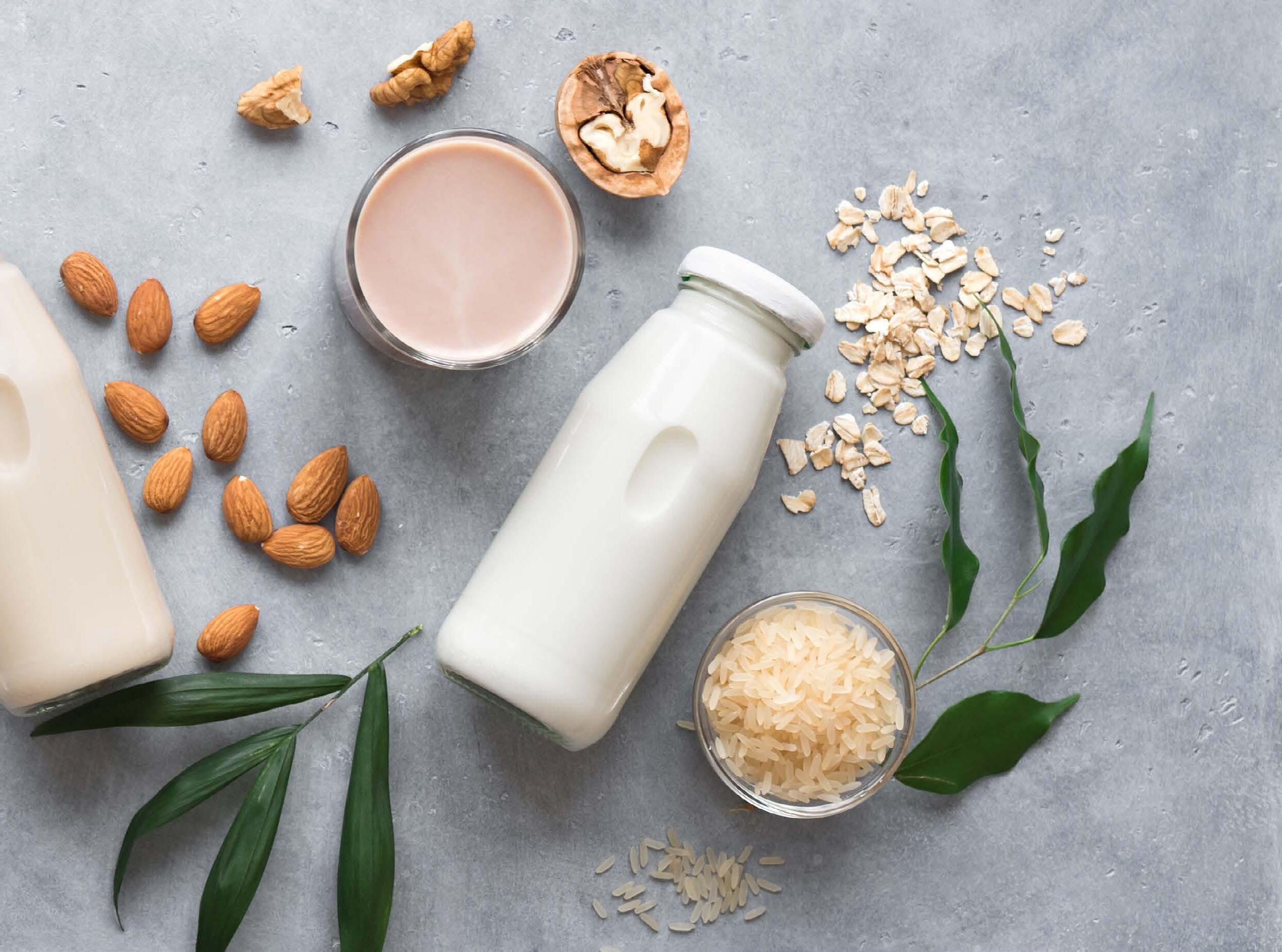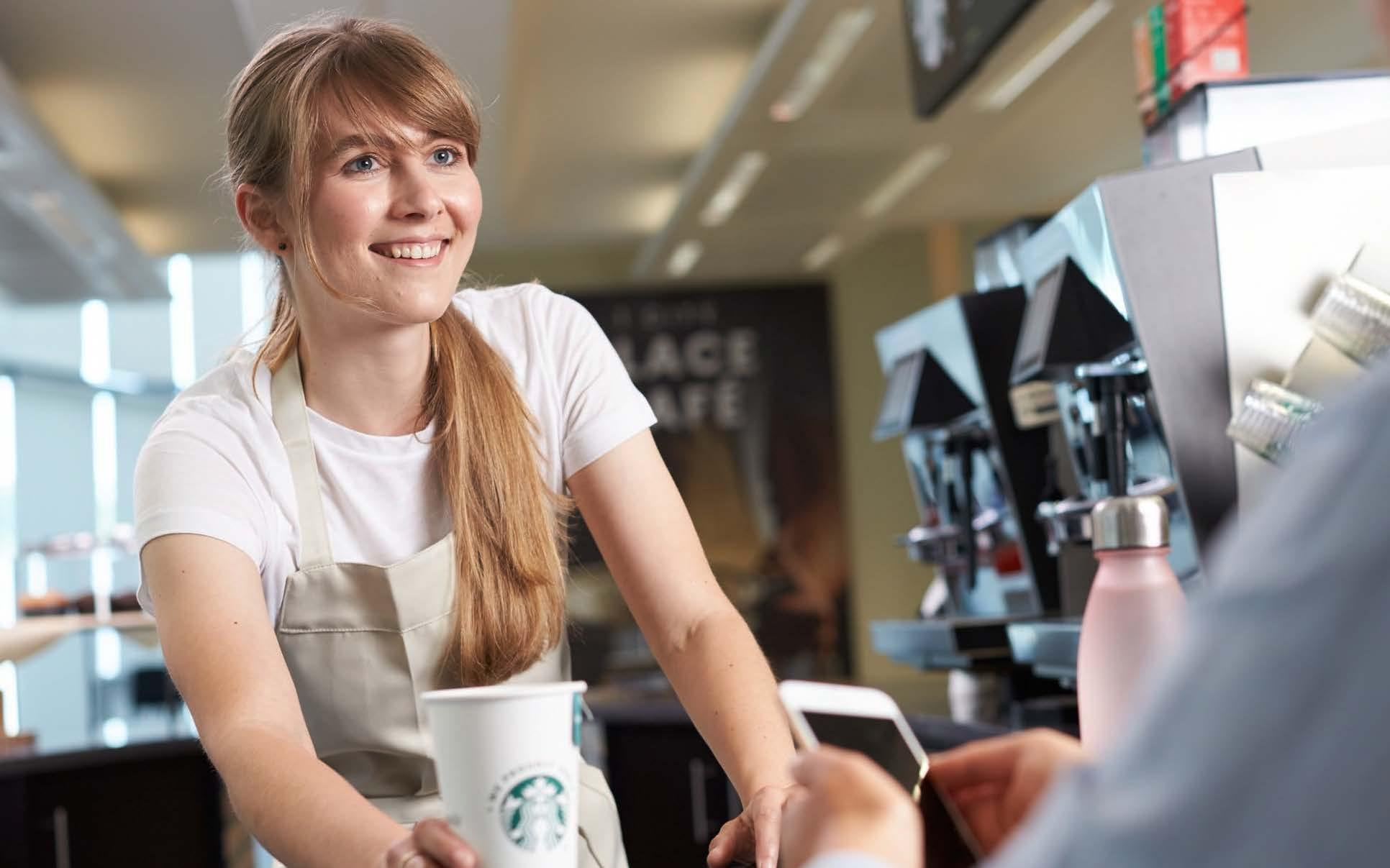COFFEE NOTES MAY/JUNE


Welcome to the May/June issue of Coffee Notes. Summer is well and truly on the doorstep, so start brewing your favourite beverage because we have a lot of coffee-related topics to discuss! In this issue we’ll be talking about how plant based milk alternatives are fast becoming the new normal in the coffee industry and whether there is such a thing as the 'perfect' coffee. From there, we’ll explore the demand for baristas (and how to become a successful one) and how coffee is fast evolving from just a beverage into a theatrical experience.

As always, we’re here if you have any questions or want to talk through anything you’ve read here today. You can get in touch with us at:
coffeepartners@uk.nestle.com
THE NEW NORMAL: HOW PLANT BASED MILK ALTERNATIVES ARE RESHAPING THE COFFEE INDUSTRY
For many coffee enthusiasts, a cup isn't complete without a touch (or generous pouring) of milk. This beloved addition transforms the texture of a coffee and provides a smooth counterbalance to its natural bitterness. In fact, for generations, milk has been an essential ingredient in crafting some of the world's most famous coffee beverages, from the classic flat white and velvety cappuccino to the rich macchiato and indulgent latte.
But the environmental impact of the dairy industry has long been criticised 1 and a range of plant based milk alternatives are increasing in popularity, from oat and soya to coconut and almond (and more). This rise of plant based milk alternatives shows no signs of slowing down, either. As more and more people choose to adopt plant based milk alternatives in their diet (48% of British adults 2 , in fact), the demand for dairy-free alternatives continues to grow.
This is especially the case with younger generations, who are more likely to prioritise environmental and ethical concerns in their purchasing decisions. 3
Is there a current champion within the alternative milk group? Statistics say so! With the majority of consumers who drink non-dairy milk choosing oat as their preferred option (16.3%), it has seen an increase of 6.1% since 2020. 4
According to a recent study by the International Food and Agribusiness Management Association, oat milk is responsible for 80% fewer greenhouse gas emissions, 80% less land use and 60% less energy 5 , compared to dairy milk. For baristas, on top of the qualities just mentioned, oat milk steams well to create a smooth microfoam and creamy texture for pouring latte art.

3-MIN READ


A REFLECTIVE COFFEE INDUSTRY
This rise in popularity of alternative milk is now making significant ripples in the professional realm. After coming under pressure in recent years, the World Barista Championships recently announced a new plant-based milk alternatives rule , where competitors will now be able to prepare a beverage using plant based milk alternative options in the milk beverage round. This has sparked huge excitement and conversation within the industry.
What does this mean? A significant shift towards inclusivity and innovation in the coffee industry. With plant based milk alternatives becoming increasingly popular due to ethical and environmental concerns, it’s important that the industry continues to adapt and offer diverse options that cater to everyone's preferences, at all times.
With this new championship rule in place, and large businesses innovating for demand, it’s clear that plant based milk alternatives are becoming a mainstream option and requirement.
 1. https://www.worldwildlife.org/industries/dairy
2. Ipsos, 2022
3. Coffee On Campus: The Future Student Experience, College and University Catering Report 2022
4. Allegra WCP Project Cafe UK 2022
5. International Food and Agribusiness Management Association: Oatly, a serious ‘problem’ for the dairy industry? Case Study
1. https://www.worldwildlife.org/industries/dairy
2. Ipsos, 2022
3. Coffee On Campus: The Future Student Experience, College and University Catering Report 2022
4. Allegra WCP Project Cafe UK 2022
5. International Food and Agribusiness Management Association: Oatly, a serious ‘problem’ for the dairy industry? Case Study
WHAT THE FUTURE HOLDS
We expect to see further experimentation within this space. It could mean the continued development of new milk alternatives made from ingredients like pea protein, hemp, or even quinoa, or it could mean a greater emphasis on sustainable sourcing and production methods. Another possibility is that we'll see plant based milk alternatives become more integrated into coffee culture, where instead of being seen as a niche or ‘alternative’ option, they become a staple of coffee menus without being additionally charged for.
The future of plant based milk alternatives in the coffee industry is bright, and we're excited to see how it develops in the coming years. As a company, we're committed to continuing to offer a range of dairy-free beverage options to our customers, and we look forward to developing this further with new and exciting plant based milk alternative beverage launches in the future.

THE PERFECT CUP OF COFFEE: FACT OR FICTION?

Coffee is a versatile beverage. It’s one that can be enjoyed hot or cold, with or without milk, caffeinated or decaffeinated and at any time of day. But with so many variables that go into making a cup of coffee, one can sometimes wonder if there is such a thing as the ‘perfect’ coffee.
So, let’s explore the idea by taking a look at the different variables that go into making a coffee and decide whether the art of the perfect cup of coffee is indeed fact or fiction.
5-MIN READ

FARMING AND PROCESSING
The first place to start is the farming and processing of the beans. The type of soil, altitude and climate all affect the taste of the beans – whether that’s Arabica, Robusta, Excelsa or Liberica – and the way beans are processed can also have a significant impact on the final flavour. For example, unwashed processing will create a fruitier and sweeter flavour, while washed processing will produce a cleaner taste. The quality of the beans at the start of the process will have a significant impact on the quality of the final coffee.
It's generally accepted that Arabica beans deliver more delicate juicy flavours, while Robusta is known for deeper, chocolatey notes. It's hard to distinguish which method creates the perfect cup, but the ‘washed’ process – though the most water-intensive process – produces the best clarity of flavour.

Q GRADE
This is the objective way to measure a coffee’s quality. For a coffee to be labelled as speciality, it has to score above 80/100 on its Q Grade, ranked in terms of ‘fragrance/aroma’, ‘flavour’, ‘aftertaste’, ‘acidity’, ‘body’, ‘uniformity’, ‘balance’, ‘clean cup’, ‘sweetness’ and ‘overall’. By these standards, a coffee ranked 100/100 would be a ‘perfect’ cup of coffee. But does that mean everybody agrees? Absolutely not!
Whilst this does leave itself open to an element of subjectivity; it does open us up to the components that professionals score a coffee by.

ROAST PROFILE
The roast profile of the beans is the next variable. A light roast will produce a brighter and more acidic taste, while a dark roast will create a more robust and smoky flavour. This is also where technology really begins to have an influence. Computer-controlled roasters can monitor the temperature and humidity levels during the roasting process, ensuring that the beans are roasted to ‘perfection’. The software allows roasters to save and store roasting profiles to improve consistency across significant periods of time.
The wiggle room for error in lighter roasts is far more unforgiving than darker roasts because the flavour profiles it creates are more complex and delicate. While many may prefer a lighter roast, which may score higher on a Q Grade rating, many find light roasted tasting notes to be unpalatable and prefer medium to darker roasts for this reason.

BREWING METHOD
With there being so many different methods of brewing coffee, including espresso, pour-over, French press and drip coffee makers, this is where subjectivity prevails. Each method has its strengths and weaknesses and each will produce a unique flavour. Everything from the temperature of the water and the grind size of the beans to the amount of time the coffee is brewed for, will all affect the final flavour. Here, technology is encouraged to ensure consistency and precision. From high-tech espresso machines that precisely control the water temperature and pressure to create the perfect shot of espresso, to smart scales that ensure dosing consistency, refractometers that measure the amount of caffeine in a brew and self-serve coffee machines that make you a coffee suitable for your tastes at the push of a button. While technology makes it possible to perfect a brew recipe and make a coffee that’s perfect ‘by the book’, coffee beans are living things and tastes can change from day to day. It takes continuous attention and adjustment to ensure consistency.

SUSTAINABILITY
In today’s coffee climate, there’s a variable not yet mentioned but is a string that attaches all other variables. This is sustainability. There’s an argument to be had that a cup of coffee with the lowest carbon footprint (and that has been tampered with the least) is perfect, arguably by sustainability standards. What would this look like? Perhaps a natural processing method. Roasted and consumed in the local terrain (or as close as possible) to where it was farmed. Brewed in a way that has the least waste and uses the least amount of energy.
Ticking all those boxes isn’t always easy, but it’s always a necessity. This is why C.A.F.E. Practices, Starbucks® sustainability verification programme and the brand's commitment to a resource-positive future is so important.

THE VERDICT
The perfect coffee is possible by objective standards. But ultimately, what one person considers perfect will differ from another, at least in terms of flavour. By understanding the different variables and how a cup is graded, as well as tasting a range of coffees from different terrains, processing methods, roast profiles and brewing methods, you can create a cup of coffee that’s perfect for your individual taste. Whether that’s at home, in your local coffee shop, or even the workplace.

WHY BARISTAS ARE IN DEMAND (AND HOW TO BECOME A SUCCESSFUL ONE!)

The business of coffee-making has become a booming industry in recent years and baristas are at the forefront of this as coffee culture continues to grow and evolve. Why? A good barista can take a simple cup of coffee and turn it into a work of art, delighting customers with their expertise and creativity.
But a barista isn’t just someone who can make a good cup of coffee – there’s a lot more to it. So, what’s the recipe for being a successful barista? What makes being a barista an exciting career choice? Let’s explore…
4-MIN READ
THE QUALITIES OF A BARISTA
Becoming a barista requires more than just knowing how to make a good cup of coffee. It requires a set of skills and qualities that aren’t always seen at face value:
PASSION
A genuine love of coffee goes a long way. With passion, every pour can be perfected and with passion comes an intrinsic desire to learn about improving processes as well as a coffee’s origins, how it’s roasted and how to get the best out of it. This level of passion is infectious and can really help create a welcoming coffee culture.
ATTENTION TO DETAIL
Baristas need to be meticulous in their preparation, ensuring that every step of the process is done with care and precision, from the temperature of the water to the weight of the ground coffee going into the machine and the yield coming out of it.
CREATIVITY
Adopt a creative mind and a willingness to try new things. The industry is constantly evolving with new ideas, techniques and technology, so baristas shouldn’t be afraid to experiment with different flavours and techniques to create unique and delicious coffee drinks.
CUSTOMER SERVICE SKILLS
Baristas are often the face of a coffee shop and as such, they should be friendly, welcoming and able to provide excellent customer service. Whilst this goes without saying, it’s important for any barista to understand they have the capability to improve someone’s day, whether that’s a simple smile, an inquisitive question or empathy towards a customer’s mood or situation.
TECHNICAL SKILLS
Baristas should have a good understanding of the technical aspects that go into coffee making, from understanding the coffee machine to the grinder and troubleshooting any technical issues that may arise.
PATHS TO BEING A COFFEE EXPERT
Being a barista is the best stepping stone to becoming a coffee expert because it’s important to have a deep understanding of the different coffee beans, roasting methods, brewing techniques and flavour profiles. So, here are some steps one can take to develop coffee knowledge even further:
ATTEND A BARISTA TRAINING COURSE
Many coffee shops and roasteries offer barista training courses that cover everything from espresso fundamentals and milk texturing techniques to coffee roasting, cupping and sourcing. These courses can help you develop the technical skills you need to not only make great coffee but know where to find it and how to roast it.
PRACTICE, PRACTICE, PRACTICE
Making great coffee takes practice. Spend time experimenting with different brewing methods, coffee beans and ratios to find out how far you can take a particular type of coffee. The more you practice and experiment, the better your knowledge will be and the more you’ll be able to pass on that knowledge.
READ BOOKS AND WATCH VIDEOS
There are so many books and articles available on coffee, from the history of coffee to the science behind brewing. Reading about coffee can help you deepen your knowledge and understanding of the beverage. But if reading a book isn’t your thing, then you’re in luck! Online you’ll find a whole range of tutorials and advice from existing experts in the field.
ATTEND COFFEE EVENTS AND COMPETITIONS
Whether it’s London Coffee Festival or a local latte art throwdown, events and competitions are a great way to meet other coffee professionals, learn about new brewing methods and techniques, and showcase your own skills.
WHAT MAKES BEING A BARISTA AN EXCITING CAREER CHOICE?

There’s still a significant amount of new coffee shops appearing on the high street and this is expected to continue. So, as the demand for coffee continues, the need for skilled baristas will always be there. But, while the average wage for baristas has increased, there’s still a glass ceiling for the profession. Past becoming a head barista, career progression is limited front-of-house, with many forced to change profession. A preferred option to some, however, is back-of-house roles, whether that be coffee roaster, buyer or marketing roles within the industry, where they can continue to develop and grow in the community.
Fortunately, the hospitality industry has recognised the importance of developing and nurturing talent in the sector.
In the UK, for example, Nestlé Professional has launched the ‘Choose Hospitality’ pledge, which aims to address the skills shortage in the hospitality industry by encouraging employers to invest in training and development for their employees. This initiative is certainly a step in the right direction and will undoubtedly have a positive impact on the coffee industry. Being a barista is certainly a rewarding job and the skills learnt can lead to opportunities for growth and development within the wider industry. With the rise in demand for coffee and the focus on talent development in the hospitality industry, the future looks bright. So, if you have a passion for coffee and a desire to learn, a career as a barista could be the perfect choice for you.
WELCOME TO THE THEATRE OF COFFEE
Coffee is a staple in many people's lives and has become an integral part of daily routines around the world. However in recent years, the way we view coffee has changed. Coffee is no longer just a simple beverage; it's an experience. This shift in perception has driven success across the industry, as coffee shops and cafés have started to use storytelling and 'theatre' to deliver a captivating coffee experience.

2-MIN READ
COFFEE AS A STORY
7 in 10 customers will buy more from brands they trust 6 and one of the most powerful ways for a brand to build trust is through storytelling and transparency. The popularity of speciality coffee shops in recent years is evidence of this, where consumers are caring more about the origin of coffee, the flavours, the ethics and the environment they’re in more than ever before.
So, it's now not only the coffee that draws people in; it's the story.
Coffee shops have become experts in storytelling, educating customers on the origin of the coffee, the roasting process and the flavour profiles. Ask a barista about a coffee and they’ll tell stories of the farmers who grew the beans, the journey the coffee took to get to the shop and how/why they’re brewing it the way they are. Some coffee shops even have in-store roasters, so customers can physically see and smell the coffee roasting process.
This storytelling creates a connection between the customer and the coffee, making the experience much more than just a simple transaction.

Take, for example, the Starbucks® Reserve Roastery in Milan. This destination offers a holistic, sensual experience to its customers, paying tribute to the ‘passion, science and craft’ of coffee. Which brings us nicely on to bringing theatre into the coffee experience.
Watching a skilled barista work their magic can be mesmerising and some coffee shops and cafés use elaborate brewing methods, such as pour-over or siphon brewing, to create even more of a visual spectacle.
On top of what goes on behind the counter, what goes on around the shop floor is also becoming a huge attraction for consumers. From roasting machines on show for the world to see how the coffee is roasted, to display screens and clever QR codes readily available to transport consumers to information hubs about where the journey began, every part of a coffee shop is starting to have a purpose. All of which add to the story and theatre of the overall coffee experience.
6 https://business.adobe.com/uk/blog/perspectives/7-in-10-customers-will-buy-more-from-brands-they-trust-uk
COFFEE IS A CATALYST
The coffee industry has recognised that consumers demand transparency for them to keep coming back. They see coffee as more than just a beverage, but a catalyst for experience and positive change.

While there’s always been an element of showmanship in coffee shops, it’s largely gone unnoticed. But with the rise in demand for transparency amongst the wider industry, it’s presented a stage from which coffee shop staff can showcase their skills, educate their customers and inspire connections through meaningful experiences.
So, when a customer leaves a coffee shop, everything is in place for them to leave better informed, more confident in their purchasing decision and more loyal to that brand.

Nestlé Coffee Partners offers a range of brands and solutions to suit your customers’ requirements.

If you’d like to talk through any of what you’ve read and explore how we can help you leverage the insights we’ve shared in this issue, or if you’d simply like to catch up over a coffee, we’d love to hear from you.
We’re available on +44 (0)203 124 1029 (Option 2) or at coffeepartners@uk.nestle.com www.nestleprofessional.co.uk/coffee







 1. https://www.worldwildlife.org/industries/dairy
2. Ipsos, 2022
3. Coffee On Campus: The Future Student Experience, College and University Catering Report 2022
4. Allegra WCP Project Cafe UK 2022
5. International Food and Agribusiness Management Association: Oatly, a serious ‘problem’ for the dairy industry? Case Study
1. https://www.worldwildlife.org/industries/dairy
2. Ipsos, 2022
3. Coffee On Campus: The Future Student Experience, College and University Catering Report 2022
4. Allegra WCP Project Cafe UK 2022
5. International Food and Agribusiness Management Association: Oatly, a serious ‘problem’ for the dairy industry? Case Study















